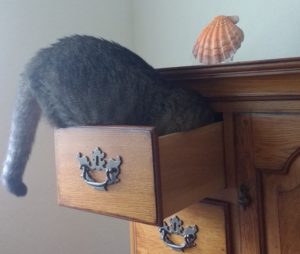
What if everyone on your team was as good as your #1 Rep?
- Quotas would be crushed
- Your team would be packed with self-motivated All Stars
- Opportunity focus would be strategic vs. tactical
Your team would be given the freedom to do what it does best and your job would be a blast.
Building a sales team of All Stars doesn’t happen by accident – it starts with consistent recruiting and deliberate interviewing. This post covers interviewing.
How I learned to interview
I learned interviewing on the job. I would scan a resume right before the interview, jot down a few notes and then “wing it”. As a result, my hires ranged from All Stars to mediocre reps to the occasional psychopath. In time, I learned from my mistakes.
I recommend starting with two books:
- “First Break All the Rules: What the World’s Greatest Managers Do Differently” by Marcus Buckingham and Curt Coffman. This book introduced me to the concept of managing by amplifying strengths vs. working on weaknesses.
- “Topgrading: How to Hire, Coach and Keep A Players” by Brad and Geoff Smart outlines a comprehensive interviewing system, parts of which I use today.
Here are the 7 steps in my Interview process and a few guidelines
- Resume Screening.
- Phone Screening.
- Focused Phone Interview.
- Onsite Interview.
- Reference Check.
- Rapport Building Interviews.
- Making the Offer.
Interviewing is not a combat sport. Every candidate deserves to be treated with respect and integrity. Interviewing is stressful enough for a candidate. I won’t make it more difficult by being unnecessarily confrontational, uncommunicative or judgmental. Except for the resume screening step, if I decide not to move forward with a candidate, I will tell him asap and explain why.
Even a mediocre sales rep will have prepped interview answers consisting of platitudes, generalities and exaggerations that may impress inexperienced interviewers. I always ask more questions about anything we discuss that seems suspect.
How to work each step
At the beginning of each step, I outline the process for the candidate. At the end of each step if the candidate is mediocre or gives me a bad gut feeling, I’ll end the interview process.
If I like the candidate and have few reservations, I’ll ask the candidate if he’s still interested in moving forward. If he is, we’ll schedule the next step. However, about 25% of the time the candidate will say “no” based on what he learned during that step.
I take notes during every step in the process for each candidate. I’ll include the forms I use for tracking this info in another post.
BEFORE EVERY STEP, I REMIND MYSELF THAT I ONLY WANT TO HIRE ALL STARS OR CANDIDATES WHO CAN DEVELOP INTO ALL STARS.
#1 Resume screening – 5 minutes per resume
Here I am identifying candidates who meet my minimum requirements (this includes any referrals, All Stars or a known Weirdos. If I receive too many resumes (eg. 25 in a day), I will ask HR to send me resumes of candidates who meet the requirements. Otherwise, I prefer to review all the resumes. I’ll make notes on the resumes with any questions I will ask later.

#2 Phone Screening Interview – 30 minutes
The purpose of the phone screening is to determine if the candidate broadly fits the role and vice versa.
For the first 15 minutes I’ll give an overview of the position, the company and my team.
Then I’ll ask 5 questions:
- What are your career goals? All Stars will clearly communicate these.
- What are you really good at professionally? I ask for at least 3 strengths with examples in a business context. If their strengths don’t match what I need, they are out.
- What are your weaknesses? What job functions don’t you like to do? Trite answers like “I work too hard” or “I give 150% to my job” are not acceptable.
- Who were your last 5 bosses? How will each rate your performance on a 1-10 scale? Why? According to Topgrading, you only want people who score 8+. My experience supports this.
- How much money are you looking for? There’s no point in shying away from this. I’ll ask the candidate how much he wants to make and will give him the range including salary/commission breakdown. Sometimes candidates are hesitant to say how much they want. If that’s the case, I’ll just tell them what we’ll pay. There is no point in moving further if there’s a big mismatch here.
#3 Focused Phone Interview – 1 hour
We’ll spend 1 hour to learn more about the person and his abilities. I’ll ask about his last 3-5 jobs – unless the job was short term or totally irrelevant to this role.
I’ll ask 5 questions about each job:
- What were you hired to do?
- What accomplishments are you most proud of in that job? All Stars will talk about results. Listen for stories that map his results to his previous job’s objectives. Ideally, the stories will demonstrate capabilities that map to my objectives for this positions as well. Be curious and prompt with “Tell me more… Can you give me an example…Can you expand on this?”. If you cannot get specifics, chances are the rep is assuming credit for results he didn’t make happen.
- What were some low points? What would you do differently now? I want to understand how a candidate handles failure and frustration because there’s no doubt he will encounter these while working for me.
- Who did you work with:
a) Your manager – name, did you like him, what will he say your strengths/weaknesses were at the time? Write the name of the manager down and tell the candidate you’ll be calling them.
b) Your coworkers – type of team, peers, etc. Same questions as above. - Why did you leave this job? All Stars often leave roles after being successful looking for new challenges and promotions. They frequently get recruited by former managers, clients and colleagues.

#4 Onsite Interview – 1.5 hours
I’ll have a rep from my team join me for this 2-on-1 interview. It serves multiple purposes. It’s an opportunity to teach my rep how to interview. It allows me to observe the candidate’s reactions when my rep is asking him questions. It helps establish a connection between my rep and candidate. And finally, my rep may discover things that I did not.
In this step, I investigate a candidate’s sales skills, systems expertise and processes. I’m going to ask about pipeline management, lead follow up, opportunity creation, closing techniques, dealing with conflicts, quota attainment etc. See this post for a list of interview questions and things to watch for.
We’ll role play during the interview. The candidate will provide me with details about an ideal prospect for his current role. Then I’ll play the customer, the candidate plays himself and my rep is an observer. The role play can be very revealing.
At the end of this interview, I’ll step out briefly with my rep to review. Then we’ll return and will inform the candidate of my decision.
After the candidate has left I will spend a few minutes debriefing with my rep. It’s the perfect time to compare notes while mentoring my rep.

#5 Reference Check
The purpose of the reference check is to weed out psychopaths and liars.
It’s important to listen carefully in order to read between the lines to better understand what’s being communicated. Most people do not want to give someone a bad reference and ruin a candidate’s chance for employment.
- If the reference says “company policy only allows me to confirm salary and title info” that’s a terrible reference and a red flag warning.
- If they give generic feedback like “punctual, works hard, team player”, the candidate was likely a mediocre contributor.
- If they don’t return my call, I’ll ask the candidate to reach out to them. If the reference still doesn’t return my call, it’s likely a bad reference.
- Former managers of All Stars will go out of their way to give great references.
The process
I’ll ask the candidate to provide contact info for 3 bosses, a customer and a coworker. I’ll also reach out to my network who may know be able to provide “inside info”.
I do all reference checks myself via the phone. I’ll ask each reference 6 questions.
- In what context did you work with him?
- What were his biggest strengths at the time?
- What were his areas for improvement back then?
- How would you rate him on a scale of 1-10 and why?
- He said he struggled with “xxx skill” at the time. Can you tell me more about this?
- After briefly describing the position he’s interviewing for, I ask “Would you hire him if you were me?”
I use candidate supplied references as a way to rule out the wrong people. The references from my network are often more candid when I can get them.
#6 Rapport Building Phone Interviews- 15-30 minutes each
Concurrently with checking references I’ll setup phone interviews with other coworkers who this candidate will work with if hired. This could include field sales reps and engineers, marketing, customer service or other inside sales reps. At times, an executive in my company may want to interview the candidate too.
The purpose of these interviews is to introduce the candidate to others in the company. It also gives others an opportunity to participate in the hiring decision. Sometimes I will ask the interviewer to focus on a specific objective like “sell the candidate on the company” or “determine if he can sell in your vertical”.
After these interviews, I gather feedback and a HIRE/DON’T HIRE decision. On rare occasions I’ll get a strong objection. Most of the time, since the candidate was already thoroughly vetted, everyone agrees to hire the candidate.

#7 Making the Offer
I’ve got 3 rules I follow.
- Trust my gut for screening people out. If I cannot pinpoint a reason, but still feel uneasy, I do not make an offer.
- DON’T trust my gut to make an offer. Confirm my positive gut feelings with Steps 1-6 first.
- Never make an offer before reference checks.
Assuming everything is good, I’ll call the candidate and tell him I want him on my team. By now, I’m selling him hard. I highlight what impressed me about him, how I think he’ll fit in and the good feedback others gave about him. I’ll talk about the benefits of the joining my team, the career advancement opportunity and other benefits the company offers him.
Then I float a verbal offer (that’s been pre-approved by HR, finance, execs). If the candidates accepts, we’ll choose a start date and I’ll send an offer letter.
Keeping him warm. Until his start day, I stay in regular contact with the candidate as he gives his notice, wraps up at his current job and makes arrangements for joining my team. I provide logistical info like dress code, office hours, parking, HR benefits info and what he can expect for his first week on the job. I am excited to have him join the team and want to keep him excited too. About 10% of my candidates who accept back out before their first day. I’ll do my best to keep this from happening.
Why I don’t wing it
My process was developed through interviewing and hiring 100’s of sales reps. For me, it provides a systematic method of identifying potential All Star reps.
I encourage every manager to create a system that works well for you. Remember Rule #1.
Click here for a list of Interview Questions for Sales Reps and here for Interview Forms.